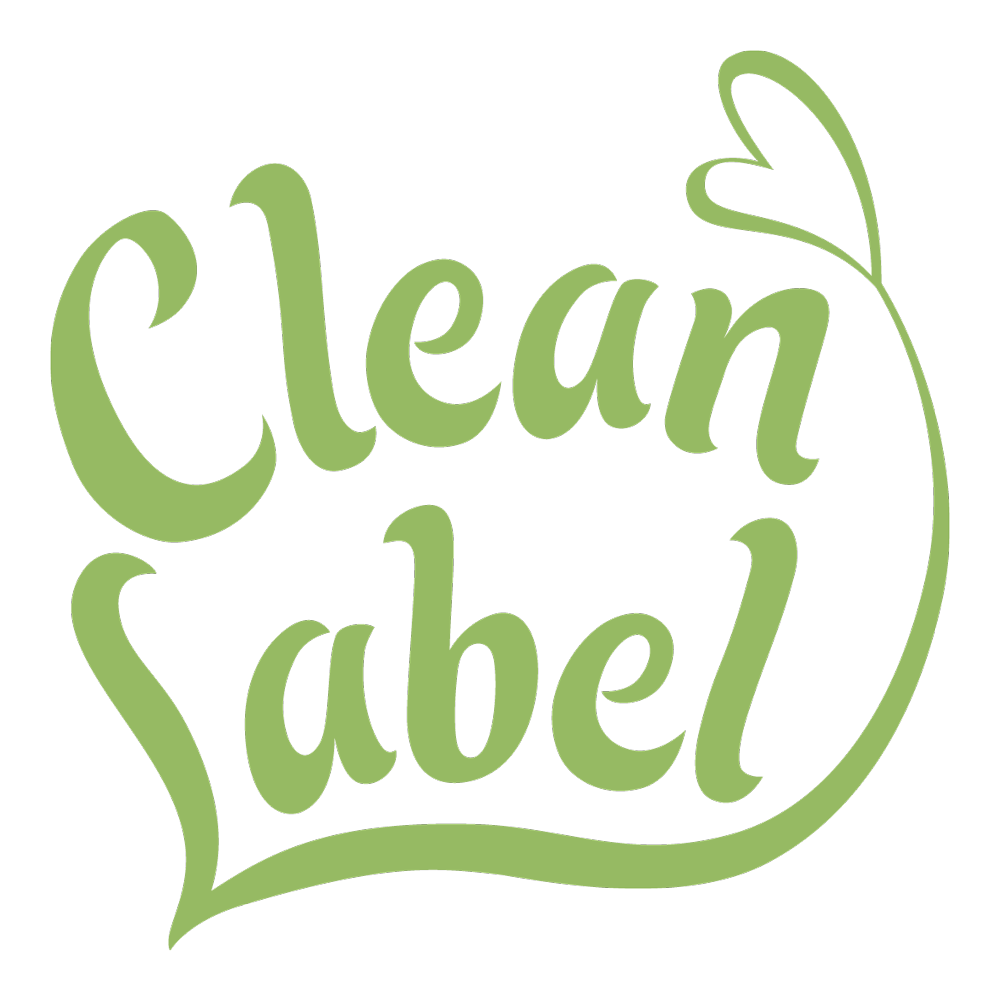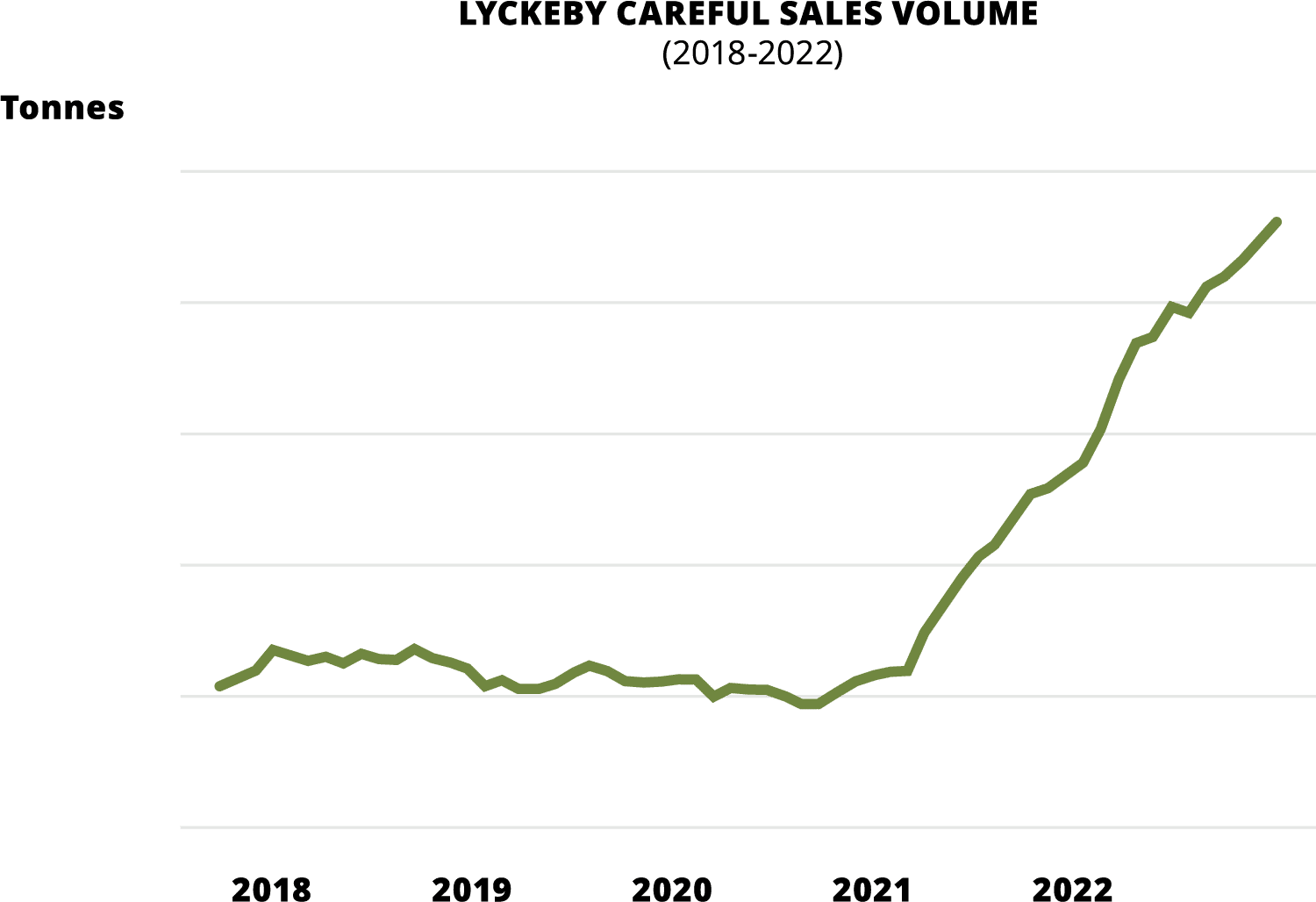
Lyckeby
The functional food starches of the future
The overarching focus of development work at Lyckeby is on developing products and concepts that will contribute to our sustainable development. This involves creating new starch products that are manufactured with lower energy and chemical inputs, and which contribute to creating climate-smart, healthy, and safe food.
A number of long-term research and development projects are collected under our internal development vision “The green starch factory”. We want to create sustainable products that correspond to our customers’ needs – and ultimately those of the consumer. One major challenge is creating starch products that can cope with the food industry’s demands for process and storage stability while simultaneously meeting the increasingly conscious consumer’s requirements for the products.

Lyckeby Careful – functional clean label starches
Today’s consumer constantly demands more sustainable products, and our Lyckeby Careful portfolio has been created especially to respond to this demand. The products are processed using a climate-smart production technique patented by Lyckeby. This technique allows for reduced consumption of energy and chemicals to make process-stable starch products that tolerate the food production processes they then undergo.
As well as the products having a lower carbon footprint, they are also clean label starches, which means they can be declared without E numbers in the ingredients list on the food product. Over the last year, we have invested in potato-based Lyckeby Careful products with the function of giving consistency, texture, increasing the switch to plant-based meat alternatives, and improving crispness in foods such as French fries.
Karolina Fridolf
Lyckeby Careful sales
Sales of Lyckeby Careful products have increased significantly in recent years, and we see these rising figures as a positive development for our carbon footprint. We see major opportunities in continuing to replace many modified starches with our Lyckeby Careful products, and the goal is to achieve a tenfold increase in sales between 2020 and 2025.

Modern plant breeding – changing the landscape
We are extremely proud of our development project in which we have worked with the Swedish University of Agricultural Sciences (SLU) and used modern plant breeding techniques, taking a very large step towards creating climate and environmentally-smart food starches.
Using the Nobel prize-winning CRISPR Cas9 genome editor, we have been working since 2014 on a project to develop new potato varieties with more naturally storage-stable starch. Natural storage stability means that smaller quantities of chemicals and energy are required to produce the starch products our customers demand.
During the financial year 2021/2022, we have carried out cultivation of different variants of seed potatoes developed using the genome editor to facilitate future industrial cultivation of starch potatoes. We have also begun product development to evaluate how these starches function in different food applications. If the project continues to show positive results, we estimate that large-scale production of new climate-smart starch products will be possible in 2025.
We are keeping a close eye on the development of regulations on modern plant breeding techniques within the EU. On 25 July 2018, the European Court of Justice decided that organisms obtained by modern techniques for plant breeding, such as CRISPR Cas9 would be classified as GMOs. This is despite the fact that modern technologies can be used more safely and more effectively than “traditional” methods such as radiation and chemical additions, which are exempt from the legislation. The decision has been criticized by authorities, researchers, and industry within the EU, and we are continuing, for example through our project for climate-smart food starches, to provide information at regional and EU level on the need for and benefits of modern technologies. We expect that the legislation will soon be changed, so we can use modern and breeding technologies on equal terms with countries outside the EU.
Kalle Johansson
Collaborative program for innovative food crops
SLU Grogrund is a collaborative program between the Swedish University of Agricultural Sciences (SLU) and industry, which aims at ensuring access to new plant varieties adapted to Swedish growing conditions and contributing to increasing, sustainable, and profitable production of food in Sweden. The program began in 2018 as part of the Swedish food strategy. Participants include academic researchers, plant breeders, and actors from the food and agriculture sectors and society as a whole.
Lyckeby plays an active role in SLU Grogrund’s steering group, and took part in 6 of the program’s 21 projects during 2021.


